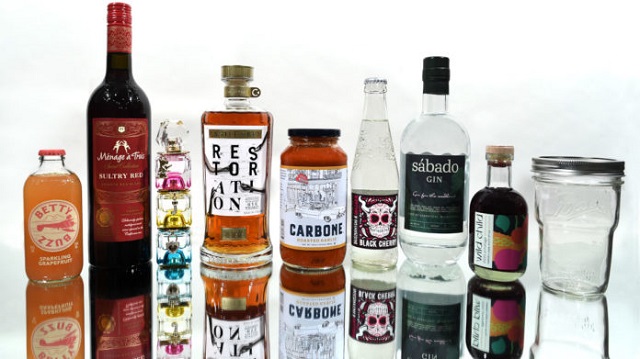Embracing Glass Bottles: A Sustainable Choice for a Greener Future
Post time: Jul-10-2024

In the quest for a more sustainable and environmentally friendly lifestyle, the choice of packaging materials plays a crucial role. Among the various options available, glass bottles stand out as a superior alternative to plastic and other less sustainable materials. This article explores the numerous environmental benefits of using glass bottles, highlighting why they are an essential component in the fight against pollution and climate change.
The Environmental Impact of Plastic Bottles
To appreciate the advantages of glass bottles, it is important to first understand the environmental drawbacks of plastic bottles. Plastic bottles are made from petroleum-based materials, which contribute to the depletion of fossil fuels and the emission of greenhouse gases during production. Once discarded, plastic bottles can take hundreds of years to decompose, leading to severe pollution in oceans, rivers, and landfills. Microplastics, tiny fragments resulting from the breakdown of larger plastic items, have been found in water sources and even in the food chain, posing significant health risks to both wildlife and humans.
The Advantages of Glass Bottles
Recyclability and Reusability:
One of the most compelling environmental benefits of glass bottles is their recyclability. Unlike plastic, which degrades in quality with each recycling cycle, glass can be recycled indefinitely without losing its purity or quality. This closed-loop recycling process means that old glass bottles can be continuously repurposed into new ones, significantly reducing the need for raw materials and energy. Additionally, glass bottles are highly durable and can be reused multiple times before they need to be recycled, further minimizing waste.
Reduced Chemical Leaching
Glass is a non-reactive material, meaning it does not leach harmful chemicals into its contents. This contrasts sharply with plastic bottles, which can release toxic substances like bisphenol A (BPA) and phthalates, especially when exposed to heat or prolonged use. By choosing glass bottles, consumers can avoid these potential health hazards and reduce the chemical pollution associated with plastic.
Lower Carbon Footprint
The production of glass bottles, while energy-intensive, generally results in a lower overall carbon footprint compared to plastic bottles when considering the entire lifecycle. This is due to the ability of glass to be recycled indefinitely, which offsets the initial energy costs over time. Moreover, advancements in manufacturing technologies and the increasing use of renewable energy sources in glass production are further reducing its carbon footprint.
Preservation of Contents
Glass bottles offer superior preservation qualities, maintaining the taste, purity, and freshness of their contents without altering flavor or composition. This makes them particularly suitable for food and beverages, where maintaining quality is paramount. By extending the shelf life of products, glass bottles help reduce food waste, which is another significant environmental benefit.
Decreased Plastic Pollution
Switching to glass bottles can play a critical role in addressing the global plastic pollution crisis. Every year, millions of tons of plastic waste end up in the oceans, causing devastating effects on marine life and ecosystems. By reducing reliance on plastic bottles and increasing the use of glass, we can significantly cut down on the amount of plastic waste generated, helping to protect marine environments and biodiversity.
Promoting a Glass Bottle Revolution
The transition to using glass bottles on a larger scale requires concerted efforts from various stakeholders, including manufacturers, consumers, and policymakers. Here are some ways to promote the use of glass bottles:
Consumer Education:
Raising awareness about the environmental and health benefits of glass bottles can drive consumer demand. Educational campaigns and clear labeling can inform consumers about the advantages of choosing glass over plastic.
Incentives for Recycling:
Governments and businesses can implement incentives to encourage the recycling of glass bottles. Deposit return schemes, where consumers receive a refund when they return used bottles, have proven effective in many regions.
Support for Sustainable Practices
Policymakers can support the glass industry by promoting sustainable practices and providing subsidies or tax breaks for companies that invest in eco-friendly technologies and recycling programs.
Corporate Responsibility
Businesses can play a significant role by opting for glass packaging and promoting sustainable practices within their operations. This not only helps the environment but also enhances brand reputation and meets the growing consumer demand for eco-friendly products.
Conclusion
Embracing glass bottles as a primary packaging choice is a significant step towards a more sustainable and environmentally conscious future. Their recyclability, non-toxic nature, and lower carbon footprint make them an ideal alternative to plastic bottles. By educating consumers, supporting recycling initiatives, and encouraging sustainable practices, we can foster a glass bottle revolution that benefits both the planet and its inhabitants. Making the switch to glass bottles is not just a choice; it's a commitment to a greener, healthier future for all.
